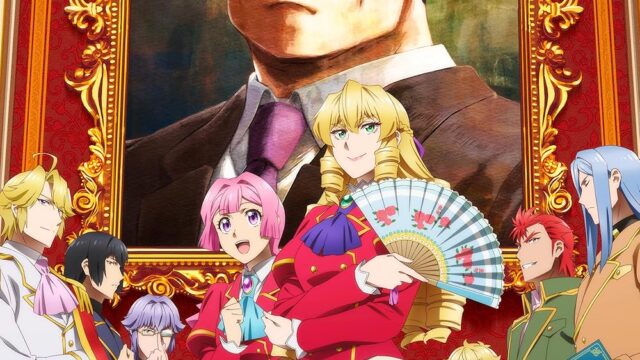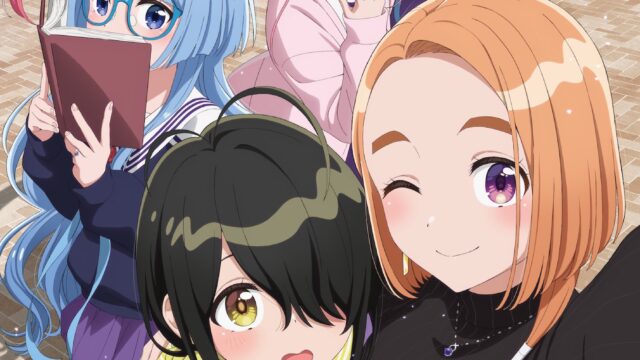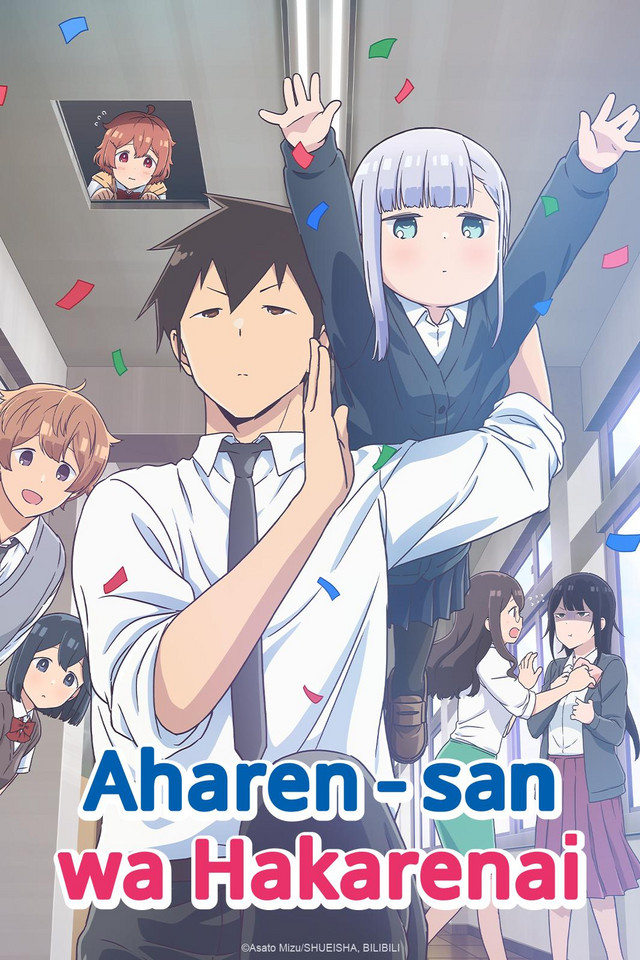English Dub Season Review: Megalo Box Season One
Time to hang up the gloves.
Meant to commemorate the 50th anniversary of the acclaimed boxing manga, “Ashita no Joe”, Megalo Box took the anime community by knock out early last year and has now wrapped its initial run on Adult Swim’s Toonami block. I’m admittedly still pretty unfamiliar with that manga or any of its anime adaptations, so I don’t know how much this show pulled from it besides the boxing and the protagonist’s name, but that’s ultimately kind of irrelevant anyway. Despite this series being related to it, Megalo Box needed to stand on its own if it was going to gain much of a following outside of existing fans of the original manga. And that actually plays into the most prevalent theme of Megalo Box, that being that no matter what tools you use, whether it’s high tech punching equipment or the legacy of an iconic story and character, what counts is that you have your own drive and will to press forward. But did it accomplish this? Let’s take a look.
PLOT:
Episodes 1-3:
These early episodes mainly serve as establishing our core cast and the objective of getting Junk Dog, later Joe, to Megalonia while also doing a bit of worldbuilding about Megaloboxing as a sport in relation to the big theme of the show. As I’ve pointed out, the first two episodes work as the usual structure of Act 1 of the story, wherein we learn Joe’s status quo of wanting to be a boxer but only being allowed to throw fights, having an “inciting incident” in meeting his future rival Yuri, being given a chance to refuse “the call” by losing to Yuri in a surprise match, then “crossing the threshold” when he shows he’s committed to not losing fights anymore and Nanbu setting up the plan to get them in the Megalonia competition.
As for Episode 3, it’s very clearly in the “Fun & Games” section of your typical Act 2, but I included it here because it’s not quite in the competition yet and introduces Sachio, who’s the last major character on their team, Team Nowhere, to join the cast. Though it does also set in motion the idea that would set Joe apart from the rest of the flock going forward.
Episodes 4-6:
This covers Joe’s first two major fights in the lead up to Megalonia (as well as two other minor fights in between them that are mainly to punctuate how he’s moving ahead). It’s here that Joe puts Nanbu’s planned gimmick into the action of entering a competition of people with Gear, the mechanical gloves, but going without it, gaining the nickname of “Gearless Joe” (which probably could’ve worked as a title for the show). At first, this is just a plan to get attention from big fighters, but it’s also a proving ground for Joe to show just how far his confidence in himself will take him on his own. It’s in his first sanctioned match against Samejima where he, Nanbu, and Sachio really synch up for the first time, with Joe realizing that he’s working with people who genuinely want him to succeed and using that to overtake someone who is only led by their impulses.
But the next two episodes shift focus mostly away from Joe to Nanbu, as their next notable match is against a former pupil and friend of his, Aragaki. This gives us a chance to learn more about Nanbu’s past as a previously well-adjusted and (at least seemingly) honorable guy, but how both his and Aragaki’s lives were shattered when Aragaki left for combat and was apparently killed. While Joe just wants to beat up on more people, the bigger story around him and between the former friends is one about how to pick up the pieces after a loss, as well as if they can truly find some hope in the future, which is important for Nanbu’s eventual actions near the end.
Episodes 7-9:
After beating Aragaki, there remains one last fight necessary to qualify for the last spot of four at Megalonia, and it just so happens to be with Mikio Shirato, brother of Yukiko, the organizer of the tournament. So, like with Aragaki providing opportunities to flesh out Nanbu, Mikio being the guy to beat allows the same for Yukiko and somewhat for Yuri, shining some light on the inner workings of her company and background as well as a bit into how her mind works (which will also come into play near the end). It also puts more focus on the technical aspect of Megaloboxing and Gears while once again showing how that relates to Joe’s gearless style. At the end of the day, the Gears are nothing more than tools, so it’s up to the person using them to use them well, not the other way around.
This “arc”, as it were, also displays this idea in a more complex way by testing Joe and co’s resolve in this through Mikio’s bluff to expose him as an illegal citizen. For a story that revolves around who can punch the most or hardest, one wouldn’t expect many challenges that aren’t physical. But while the mental aspect of the sport is just as important for many of the characters, what sets this moment apart is how it highlights exactly the difference is between Mikio’s fighting style and Joe’s before they even get in the ring together. One comes from the world of business and high society where deception and tricks are commonplace, while the other only knows how to prove themselves by charging forward and hitting a challenge with everything he’s got. Having this skillset starts as a major advantage for Mikio but soon becomes his greatest weakness. More on that later.
Episodes 10-11:
Megalonia begins in earnest, but even after qualifying, one obstacle is left between Joe and his destined rematch with Yuri. But it’s not his opponent Burroughs, it’s and Nanbu’s connections to the mob, as well as their own personal hang-ups that they must overcome once and for all. The truth emerges about Nanbu’s real goals: Not to let Joe truly go all out as he thought, but to once again throw away his shot to rig some bets. It’s a crushing reminder, not just for Joe but Nanbu as well, about the possibility that things might not have changed at all for them. That despite how alive they’ve felt after each win and the ever-growing hope that they might go all the way, they’re really still in a cage controlled by Fujimaki, Nanbu’s boss. It also shows that Fujimaki helping them snap out of that funk against Mikio wasn’t him suddenly believing in them as fighters, but simply him trying to make sure they didn’t lose when HE wanted.
Much like said aforementioned funk, this pushes Team Nowhere (including Sachio, who gets a bit more about his own background fleshed out, such his connection to Shirato) to put all of themselves on the line to get through to facing Yuri. For some, it’s about finding the courage to fight, and for others, it’s about sacrificing an ironic price to secure their freedom. Either way, it certainly says a lot when even Yuri, the boss at the end of the proverbial dungeon here, is pushing Joe to fight just to get the chance for them to face each other.
Episodes 12-13:
Which is why the tension in these last few episodes actually ends up feeling a bit thinner than before. From the end of Ep 11 onward, there aren’t really any villains anymore, just the build-up to the anticipated final match and the speculation of what it could cost the two fighters if they go too far. And oddly enough, Yuri arguably gets more focus, with some much-needed expansion on his background and motives as they differ from Yukiko. And by the time we get to the fight itself, it almost feels like the outcome doesn’t matter in the sense that we’re here for the fight and nothing else, just like its two fighters. Though it is just a bit disappointing that, with every episode having “DEAD” or “DEATH” in the title, that no one ends up dying in the end. I guess that would sour the more optimistic mood of it all, though.
CHARACTERS:
Joe:
Joe, or Junk Dog as he is famously known, is one of the better recent examples I’ve seen of a Flat Protagonist. For those who don’t know what that means, it’s essentially a protagonist who is not meant to change in the typical way a protagonist does in that they learn a lesson throughout a story and change their outlook accordingly, but rather change others around them because their outlook is the correct one from the start. That’s not to say that means they always approach this change in the correct way, as Joe demonstrates multiple times, but he does represent the core ideas and theme of the show: that one should believe in their own strength to move forward.
When we first meet Junk Dog, he’s stuck throwing fights in back alley arenas with not even a real name to go by but knows he could beat anyone if he got a shot. However, he has no real reason to think there could be a better life for him than the one he’s got until a chance encounters with the Megaloboxing champ, Yuri, who sparks Joe’s hopes and pushes his thirst for more challenges. It’s because of that first fight between them that Joe sees the reason to throw away his old life (as far as he knows) just for a chance to face Yuri again. And once he gets in the ring and shows off his lack of gear, he revels in the thrill of risking it all on each and every match, since he has the confidence to believe he can beat anyone he faces, which…to be fair, he turns out to be right about.
Naturally, an obstacle arises when that confidence and ability aren’t always the solution. When he’s forced to throw the fight against Mikio, it’s because of the risk of his illegal status going public, which would disqualify him from the tournament anyway. But I think the bigger personal fear for Joe regarding that is more about the possibility that people will judge him by his past, which he can’t control, and not by his fighting ability, which he has put everything into making the best it can possibly be. Likewise, when it’s revealed that he’s just been set up to throw the next fight, he feels betrayed because things are out of control again, and the guy he thought believed in him might not have this whole time.
That might have been what Joe wanted this whole time: for people to believe in what he can do, not where he came from. This seems to be what he sees in Yuri, as well as Nanbu and Sachio, and what ends up driving him all the way to becoming the champion in the end.
Nanbu:
Initially starting out as Joe’s one-eyed manager who holds him to rigged fights, Gansaku Nanbu acts as a pseudo-father figure for Joe. He knows the kids talented and could probably go far if given the chance, but their situation can’t afford for them to risk that. We later find out that a lot of that has to do with the supposed loss of an old friend, Aragaki, and how that seeming loss warped Nanbu’s view of the world. Yet despite this, he still strives to be someone who pays his debts and keeps his promises, even when being fully aware his life is on the line. Such a moment arises when, once Joe shows he’s no longer willing to fight the same rigged fights, Nanbu puts together the plan to get him to Megalonia in order to both save his own hide from Fujimaki’s wrath, but also to give Joe that shot he wanted to really go all out.
Once they’re on their own on their boat and starting their training, he starts to immerse himself in the role of being a real coach again, almost forgetting about his obligations to his boss and the ultimate goal of this plan. After the first match against Samejima, he, Joe, and Sachio really gel as a unit, as well as showing genuine concern for Joe’s well being when Aragaki threatens to “destroy” him, almost as if a ghost of all his mistakes is about to destroy the representation of his future hopes that Joe seemed to have become for him. Then, when it looks like the jig is up against Mikio, his underworld connections serve him well in finding out the cracks in Mikio’s bluff, though his lack of honest with Yukiko ends up backfiring on him.
But his last major step in development comes with the reveal of the true plan to Joe, where he finally owns up to his past mistakes and fully commits to helping Joe. When the fight against Burroughs seems to be going to plan, he tries to make things easier for Joe by instructing him to try not getting hurt so much, but knows it’s killing Joe to have to throw the fight just as much as it’s killing him to see such an amazing boxer throw the chance to be here just because his coach made some mistakes. It’s then that he makes a sacrifice (that was actually set up early on) of his one remaining eye to settle things with Fujimaki, ironically blinding himself so that he can finally see the truth about his love and belief in Joe’s ability. This doesn’t stop him from being a great coach for the final round, though, and by the end, he feels content in what he’s been able to do.
Sachio:
Sachio is pretty much the obligatory cute kid and moral center of Team Nowhere, keeping Joe and Nanbu in line when their in-fighting gets to be too much, but he’s still a valued member of the team. He starts the show amongst his three other friends (whose names escape me) working for a Gear dealer in the job of swiping parts, but end up with Joe when that deal goes south and Sachio sees some hope to get to Megalonia in him. As we find out later, that hope is tied to his desire for vengeance against the Shirato Organization for what happened to his dad, who he believes was killed while making the Integrated Gear that Yuri now wears. This turns out to be partially true, but not something known by Yukiko, who deals with this internal affair.
When Team Nowhere is in a tailspin upon revelation about the plan to throw the Burroughs match, Nanbu gives him a shot at his vengeance by handing a knife outside a Shirato function, but he decides against it when he notices Yukiko with some younger kids. He even ends up staying with her to hide from Fujimaki, which is how she learns about what happened with his father, but he ends up going back to Joe and Nanbu when everything blows over. His main contribution to the final fight is handing Yuri water to make sure he’s at his top game, as well as the usual cheerleading for Joe. His journey is pretty minor in the grand scheme, but he’s still an enjoyable character.
Fujimaki:
Being Nanbu’s superior in the mob, Fujimaki is very rarely outside his calm and composed demeanor, even when he is deadly serious about matters of life and death. He’s often seen talking about ritzy food and drink, which seems to be a way of showing how affluent he is in his profession and to intimidate those dealing with him that he is someone powerful who they shouldn’t mess with. His view of situations seems to be that of someone who sees people who are of use or people who can be ignored or disposed of, but he is always in control either way. His main link to the story is in how he interacts with Nanbu as a devil on his shoulder, feeding all of his insecurities about being a fraud and that he should do as he’s told. It’s cathartic then to see how he’s unable to process that Nanbu would willingly blind himself to “see” Joe make it to the final match, but he settles on a bemusement of the whole situation.
Yukiko:
Yukiko Shirato is the catalyst for the entire story, being the one who put the Megalonia tournament in motion. We find out later that, despite her talk of it being for anyone to fight, this is simply to show off Yuri’s Integrated Gear to the military for a partnership deal, showing how calculating she is. However, like Yuri, she is slowly shown the value in “true skill” and a good fight for its own sake through Joe’s continued efforts. It’s not until her brother Mikio becomes Joe’s next opponent that we learn that her acquiring of the family company by their grandfather is a contentious one by both her brother and the other heads of the company, mostly due to her favoring of the Integrated Gear over Mikio’s ACE model.
She’s also shown to be very adverse to risks of her carefully laid plans when Nanbu comes to negotiate to let Joe have another crack at Mikio. It becomes clear that he and Joe came into the competition through less than legal means, meaning allowing Mikio into the slot is the safer bet (not that she thinks he’ll beat Yuri anyway). But once Joe literally crashes into the opening ceremony and reminds her of the value of “true skill”, she allows him the chance to prove himself, which leads to her brother losing. This even makes her wonder for a moment what things would be like if she hadn’t been chosen by their grandfather to lead the company.
This resolve is further shaken once Yuri tells her he plans to remove his Integrated Gear for his match with Joe to put them on an equal playing field. Despite the fact that they’ve already made enough of a show of the tech for it to look viable as a product, she’s shaken by someone she trusted as the future of her company going against her for their own goals. She still shows she cares for Yuri during his recovery, however, and even shows she’s taken his and Joe’s ideas to heart in her pitch of the gear to the military when she says that it isn’t a weapon, but merely a way of boosting performance. In the end, she even starts up a second Megalonia tournament a year after the final match, showing she is open to encouraging those who are willing to fight.
Yuri:
As Joe’s ultimate opponent of the series, Yuri is surprisingly not very antagonistic, let alone villainous. Like everyone else, he is spurred on by Joe’s spirit but only begins to see him as the real deal when he notices news of Aragaki’s defeat. From there, despite their limited interaction for the majority of the series, he and Joe begin to form a unique kinship as two fighters who came from nothing and want nothing more than to find someone who can give them the ultimate match.
We never quite get a good look at Yuri’s background, even less than Joe’s (who is also particularly enigmatic about his past), but we learn in a conversation with Joe about their reasons to fight that he “came from nothing” and is initially in this to help Yukiko, who believed in him despite that. It’s not that he doesn’t have goals of his own, but for the longest time, helping Yukiko was all he needed until Joe came along. But once the Gearless fighter makes a splash in the arena and makes his way to facing Yuri in the finals, the champion sees no better way of respecting his efforts than taking off his own Gear, which turns out to be grafted onto his own skin. And by the time the fight comes around, the outcome no longer matters because they’ve both achieved their goal of fighting the right person in the ring. I don’t often see antagonists actually rooting for someone to come kick their own ass.
By the end of the show, it looks like Yuri’s put fighting behind him, but has become content with getting the battle he always dreamed of, even at the cost of his championship title and his health.
CONCLUSION:
Megalo Box is a tale of hard work, honor, and hope to overcome often unbeatable odds. That believing in one’s self will always overcome those who rely on their tools over their heart. While I doubt this was every trying to coast off its predecessor’s reputation, it has proven that it can stand on its own without the modern animation graphics of today, being completely line drawn as opposed to CG. With only 13 episodes and a tight story with lovable characters, it stands to become one of the better and more accessible anime of the decade. Watch it whenever you get a chance.



























"There are also other characters that come and go (also owned by the Warner Bros. Discovery conglomerate media company)."
Huh. Is that just referring to other characters from the show itself, or is this implying that the new season is going to have cameos from other WBD IPs